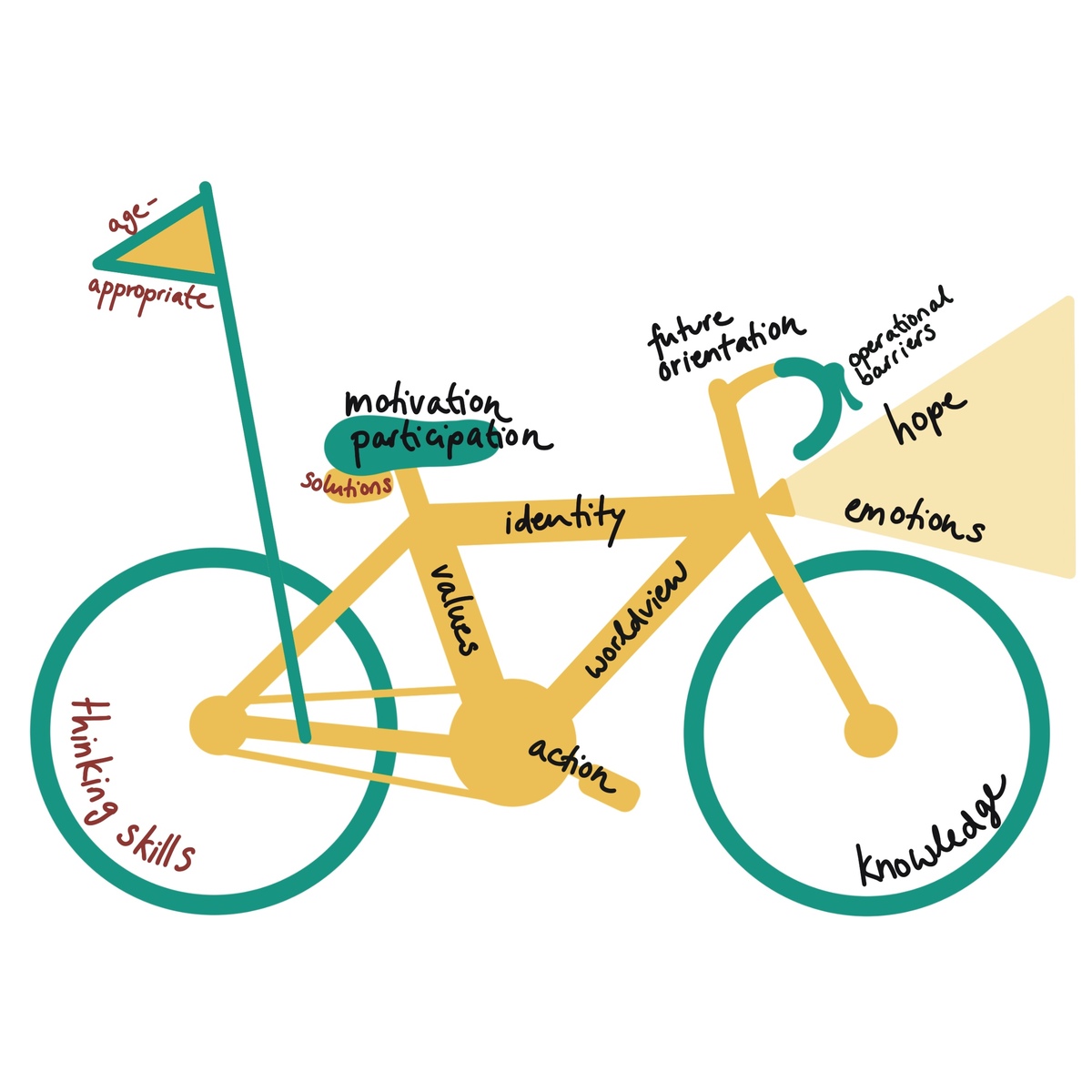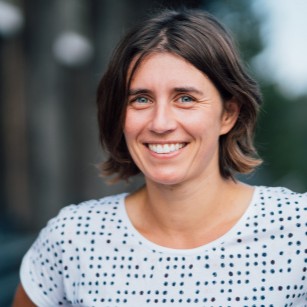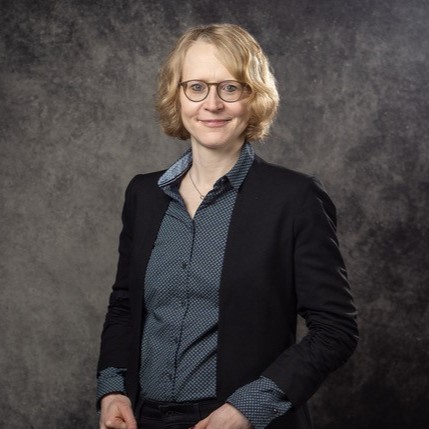MINT Bewegt Nachhaltig
Welcome to “MINT Bewegt Nachhaltig” (engl.: STEM Moves Sustainably), a student laboratory at Karlsruhe Institute of Technology (KIT) - a unique extracurricular educational program that combines education for sustainable development (ESD) with the fascinating STEM subjects (science, technology, engineering, mathematics) and sport. The mission of our learning lab is to raise awareness of sustainable thinking and action. We want to support students in (further) developing the skills they need to actively shape their own future and that of society. At the same time, we highlight the relevance of technology and science for sustainable development and arouse interest in these exciting subject areas.
Our vision is based on the “Bicycle Model for Climate Education” by Cantell and colleagues (2019), which visualizes learning processes as parts of a bicycle. We have used the visualization and metaphors of the model and adapted them with the terms marked in red. The interpretations of the individual components are based on our vision of the student labs.
- Wheels (knowledge and thinking skills): Our stations promote thinking and acting in terms of education for sustainable development (ESD). Just as the wheels of a bicycle enable propulsion, we impart knowledge and skills in the STEM subjects - such as the ability to reflect, teamwork, problem-solving skills, thinking skills, ... This forms the basis for ESD topics to promote sustainable thinking.
- Framework (identity, values and worldview): In our student lab, students work together in small groups and reflect both individually and as a team on how they can apply what they have learned to their everyday lives. They discuss and question their previous behaviors and develop new, more environmentally conscious approaches. In this way, we encourage a deeper examination of their own identity and motivate them to adopt a more sustainable lifestyle.
- Pedals (action): The pedals and chains symbolize practical action driven by knowledge and motivation. Without concrete actions, knowledge remains ineffective. This is why pupils actively explore different areas of sustainability - especially ecology - through experiments, games and puzzles. They use their STEM knowledge to explore real-life, sustainable solutions and deepen their skills in a practical context.
- Saddle (motivation and participation): The saddle stands for motivation and participation, which are crucial to get the bike moving. That's why our stations use experiments, puzzles and playful approaches to arouse interest and motivation to engage with STEM and ESD topics.
- Steering wheel (future orientation): The steering wheel represents the ability to look into the future and make decisions. We allow students to reflect on what they have learned and adapt their future actions accordingly in order to contribute to a sustainable society.
- Brakes (operational barriers): The brakes symbolize obstacles that can hinder action. However, understanding these barriers helps to overcome them. For this reason, students deal with topics that make sustainable action more difficult (e.g. extraction of raw materials for cell phone production) and look for practicable solutions.
- Lamp (hope and emotions): The lamp stands for hope and emotions. Climate change often arouses strong negative emotions such as fear or guilt. These feelings must be acknowledged in order to promote hope and constructive action. We therefore focus on positive emotions and hope as we shape a sustainable future together and strengthen the belief in change.
As discussed and recommended by the authors of the model, we are adapting the model to the needs of our practical educational work and are therefore adding two further elements:
- Tool bag (solutions): Our lab encourages participants to actively find solutions to current challenges and apply them in everyday life.
- Bicycle pennant (age-appropriate): Our student lab is adapted to the needs of different age groups and can be carried out without prior knowledge.
Cantell, H., Tolppanen, S., Aarnio-Linnanvuori, E. & Lehtonen, A. (2019). Bicycle model on climate change education: presenting and evaluating a model, Environmental Education Research, 25(5), p.717-731, DOI: 10.1080/13504622.2019.1570487
Our Student Laboratory
Under the direction of Dr. Olivia Wohlfart and Dr. Martina Füchtemeier, students can explore laboratory stations such as examining microplastics in soil samples, discussing the impact of their diet on the climate, or earning a waste management license. The unique aspect is that the children and teenagers conduct the experiments themselves.
The program is adapted to the needs of different age groups and can be carried out without any specific prior knowledge. Pupils at lower and lower secondary level have the opportunity to take part in various stations within four different subject areas (soil and water; nutrition; plastic; waste) that deal with multifaceted aspects of sustainability.
This allows them to actively engage with sustainable development issues and learn how to apply their STEM skills in this new and real-life context.
What exactly is behind the term “Education for Sustainable Development”, how the UN Sustainable Development Goals set global standards and what role the Karlsruhe Institute of Technology (KIT) plays in promoting sustainability, as well as further information about the visit, can be found under background and general conditions.
| Project management: | Administration & Organisation: |
Deputy head of the work area
Project management
+49 721 608-45402
olivia wohlfahrt∂kit edu
Office Manager
Administration and organization of laboratory visits
+49 721 608-45396
martina fuechtemeier∂kit edu




